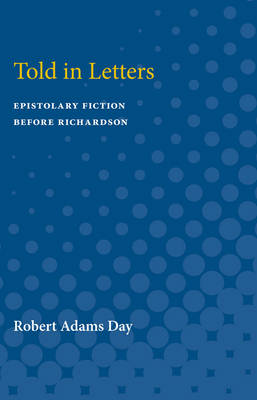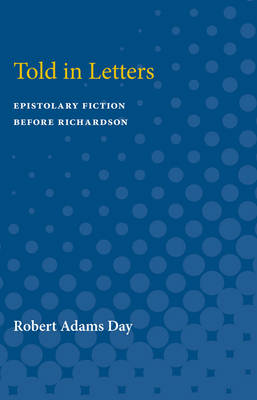
- Afhalen na 1 uur in een winkel met voorraad
- Gratis thuislevering in België vanaf € 30
- Ruim aanbod met 7 miljoen producten
- Afhalen na 1 uur in een winkel met voorraad
- Gratis thuislevering in België vanaf € 30
- Ruim aanbod met 7 miljoen producten
Zoeken
€ 41,95
+ 83 punten
Omschrijving
Told in Letters is a study of the English novel before it came of age with Richardson's Pamela. The first book to trace the history and methods of using letters to tell a story, it draws on more than 200 little-known works written before Pamela. Many of these were designed for a public that had little concern with art.Here we see the origins of the psychological novel in its most primitive form. We also discover the achievements of early letter fiction such as the "familiar letter" and the widely imitated innovations of French fiction. In addition, Told in Letters portrays the Grub Street world that gave birth to popular literature, and describes the power that booksellers and popular taste had over these early novels.Finally, Richardson is reassessed in the light of his predecessors' writing, and we understand better the origins of a literary technique that did so much to revolutionize English fiction in the middle of the eighteenth century.
Specificaties
Betrokkenen
- Auteur(s):
- Uitgeverij:
Inhoud
- Aantal bladzijden:
- 292
- Taal:
- Engels
Eigenschappen
- Productcode (EAN):
- 9780472750924
- Verschijningsdatum:
- 1/01/1966
- Uitvoering:
- Paperback
- Formaat:
- Trade paperback (VS)
- Afmetingen:
- 152 mm x 229 mm
- Gewicht:
- 430 g

Alleen bij Standaard Boekhandel
+ 83 punten op je klantenkaart van Standaard Boekhandel
Beoordelingen
We publiceren alleen reviews die voldoen aan de voorwaarden voor reviews. Bekijk onze voorwaarden voor reviews.











